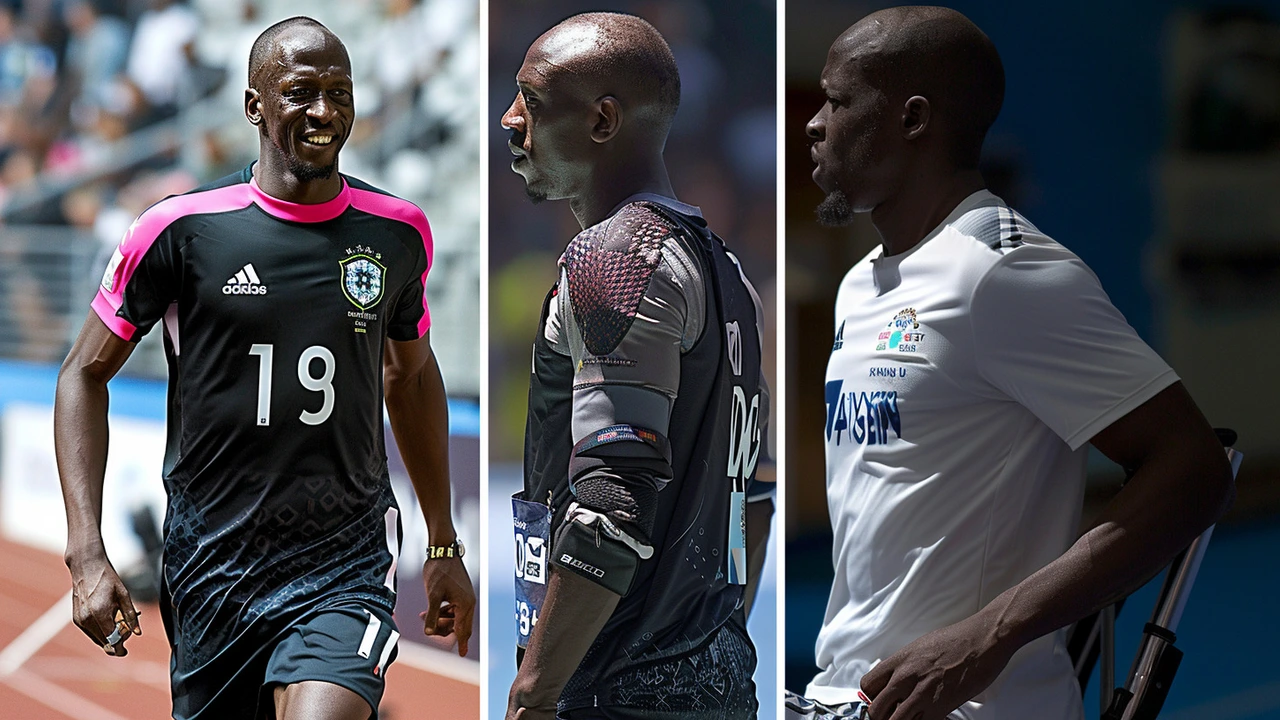Usain Bolt — why he still matters in sprinting
Usain Bolt is the name casual fans and track geeks both use when they talk about speed. He holds the 100m world record (9.58s) and the 200m world record (19.19s), won eight Olympic golds, and made sprinting feel electric. If you want quick context: Bolt changed how the world watches athletics — bigger crowds, viral moments, and a younger generation chasing his times.
Key facts fans should know
Bolt burst onto the global stage as a teenager, won his first Olympic golds in 2008, and dominated three Games in a row. Beyond medals, his celebrations, confidence, and showmanship turned races into events. He’s also moved into business, entertainment, and occasional public appearances since retiring, which keeps him in the headlines even when he isn’t on a track.
Want to follow real Bolt news? Stick to verified sources: his official social accounts, major outlets, and statements from his team. Avoid random posts claiming sudden comebacks or miracle training tips — those are often guesses or clickbait.
Why his legacy matters for African athletics
Bolt’s impact isn’t just Caribbean or global — African sprinters cite him as inspiration. Athletes from South Africa, Kenya, Nigeria, and elsewhere say his races changed how they trained and marketed themselves. He showed that sprinting can build global fame, sponsorships, and post-career opportunities. That example helped African federations think bigger about supporting sprinters, not only distance runners.
Looking for stories about Bolt on Africa Daily Dispatch? Expect pieces on his visits to the continent, reactions from African athletes, and analysis of how his legacy affects local training systems and youth programs.
Curious about Bolt’s current projects? He’s focused on business ventures, occasional charity work, and media appearances. He sometimes turns up at exhibition races, sporting conferences, or brand events. These are the moments that make headlines and give context to how athletes transition out of top competition.
Are you an aspiring sprinter? Bolt’s success boiled down to raw talent plus disciplined work. Simple, practical tips: focus on explosive starts, build sprint-specific strength, refine technique, keep recovery strict, and race often to sharpen nerves. No shortcut beats consistent training and smart coaching.
Want to spot trustworthy Bolt content? Follow his verified Instagram and Twitter/X accounts, subscribe to big sports outlets, and check athlete or federation press releases. For historical coverage, look up his Olympic finals and World Championship races — those clips are the best way to study what made him different.
Usain Bolt still shapes how people watch and train for sprinting. Whether you’re a fan, a coach, or an athlete, his records set a target and his story shows how sports can change a life. Keep an eye on major outlets and Africa Daily Dispatch for reliable updates and thoughtful coverage when Bolt headlines the news again.
The Final Lap: Iconic Athletes Retiring After Paris 2024 Olympics
The article explores the imminent retirements of five legendary athletes after the Paris Olympics in 2024, highlighting their remarkable contributions to sports and their plans for life post-retirement. Athletes include Usain Bolt, Michael Phelps, Simone Biles, Novak Djokovic, and Lionel Messi.
Usain Bolt's Achilles Injury at Soccer Aid: A Setback to His Football Aspirations
Usain Bolt, legendary sprinter, suffered a ruptured Achilles tendon during Soccer Aid, a charity match for UNICEF. This severe injury could require surgery and put his budding football career on hold. Bolt’s transition from track to football faces a major challenge as he grapples with this significant setback.
